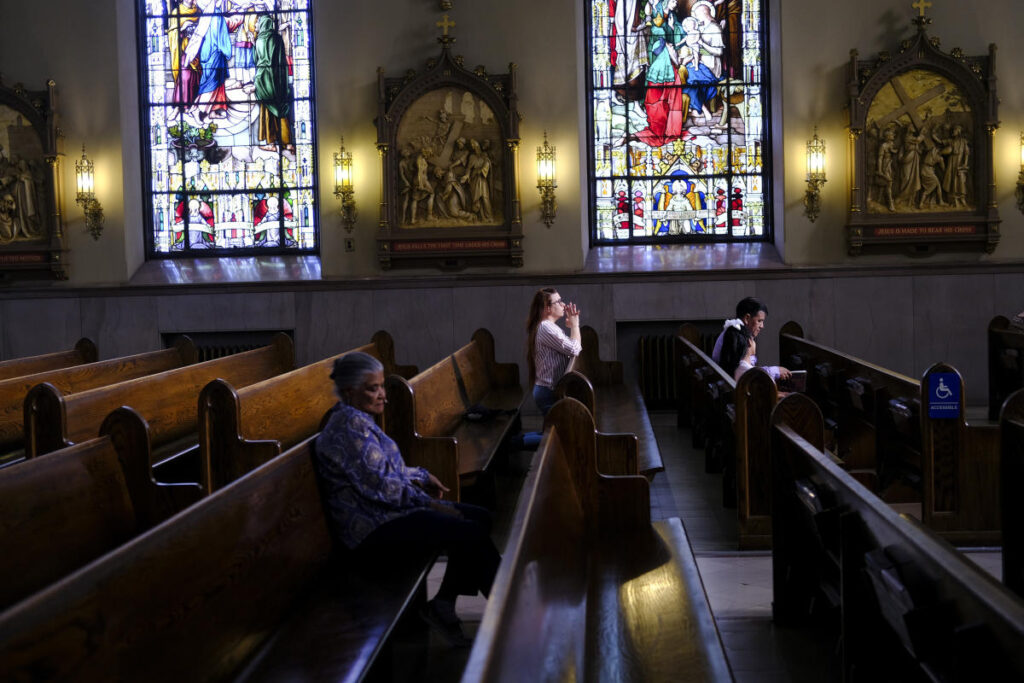In the upcoming presidential elections, Pennsylvania will play a crucial role due to its significant population of Catholic voters, a demographic that has shown a trend of being closely divided in recent contests. Historically, Catholic votes have swayed election outcomes in the state, as seen in the narrow victories of Donald Trump and Joe Biden in 2016 and 2020, respectively. John Fea, a historian from Messiah University, indicates that Biden’s Irish-American Catholic background allowed him to connect personally with many voters, as they perceived him as “one of their own.” Nevertheless, the electoral landscape is shifting, with Trump returning as the Republican candidate alongside JD Vance, a Catholic. Meanwhile, the Democratic ticket, under Kamala Harris—who does not have a Catholic background—faces challenges in maintaining Catholic support, especially in Biden’s native area surrounding Scranton.
Voting sentiments emphasize moral issues such as abortion, which remain a cornerstone for many Catholic voters. Nikki Bruni, a staunch anti-abortion activist from Pittsburgh, expressed her unwillingness to support Harris due to her stance on abortion despite feeling dissatisfaction with Trump’s current approach on the topic. Bruni and others like her view their votes as essential in the competitive swing state climate of Pennsylvania, where each vote carries substantial weight for the direction of the leadership. Conversely, groups backing Harris argue that the notion of “pro-life” extends beyond abortion, calling for a broader engagement with the principles of Catholic social teaching, including immigration, healthcare, and supporting young families.
The Catholic voter base in Pennsylvania is predominantly white and non-Hispanic, with roots tracing back to European immigrants who contributed significantly to the state’s industrial past. While numbers have dwindled due to industrial decline and church scandals, this demographic still possesses notable historical significance. This group of voters remains influential as both political parties seek to capture their support. Polling data from Franklin & Marshall highlighted their importance, noting that they supported Trump over Biden in the last election cycle. With Vance as a candidate in the spotlight now, the influence of conservative Catholic values on Trump’s platform, especially regarding abortion, poses further questions about voter alignment.
Harris’s campaign is urged to pay closer attention to Pennsylvania’s Catholic constituency, which is galvanized by various factors beyond abortion, such as economic policies and international relations. Initiatives by local Catholics supporting Harris involve grassroots outreach efforts in historically significant areas, targeting communities with Eastern European ancestry. Concerns about Trump’s stance on NATO and aid to Ukraine particularly resonate with voters who remember the political upheaval of their homelands. While some predict a shift of these voters toward the Democratic ticket based on these issues, there remains skepticism concerning their willingness to embrace a candidate lacking shared Catholic values.
Recent surveys illustrate the multifaceted issues that Pennsylvania Catholics consider critical when voting. While opposing abortion is a priority for the U.S. Catholic bishops, broader social justice topics like health care, immigration, and poverty resonate more widely with voters, prompting them to consider how each party aligns with their holistic values. Less than half of surveyed Catholics named abortion as a “very important” issue when deciding who to support, signaling a diverse voting landscape influenced by a combination of economic and social issues.
As the election approaches, the contrasting views among Catholics in Pennsylvania reflect broader national dialogues regarding moral and civic responsibilities. Supporters of Trump point to perceived failings of the Biden administration on issues like fiscal responsibility and border control, viewing a robust America as essential for global leadership. Conversely, proponents of Harris and broader Democratic policies argue that long-term social welfare is paramount for addressing existing inequalities. This division encapsulates the ongoing evolution of the Catholic vote, which, while historically cohesive, remains increasingly complex in its interpretation of values and priorities.

